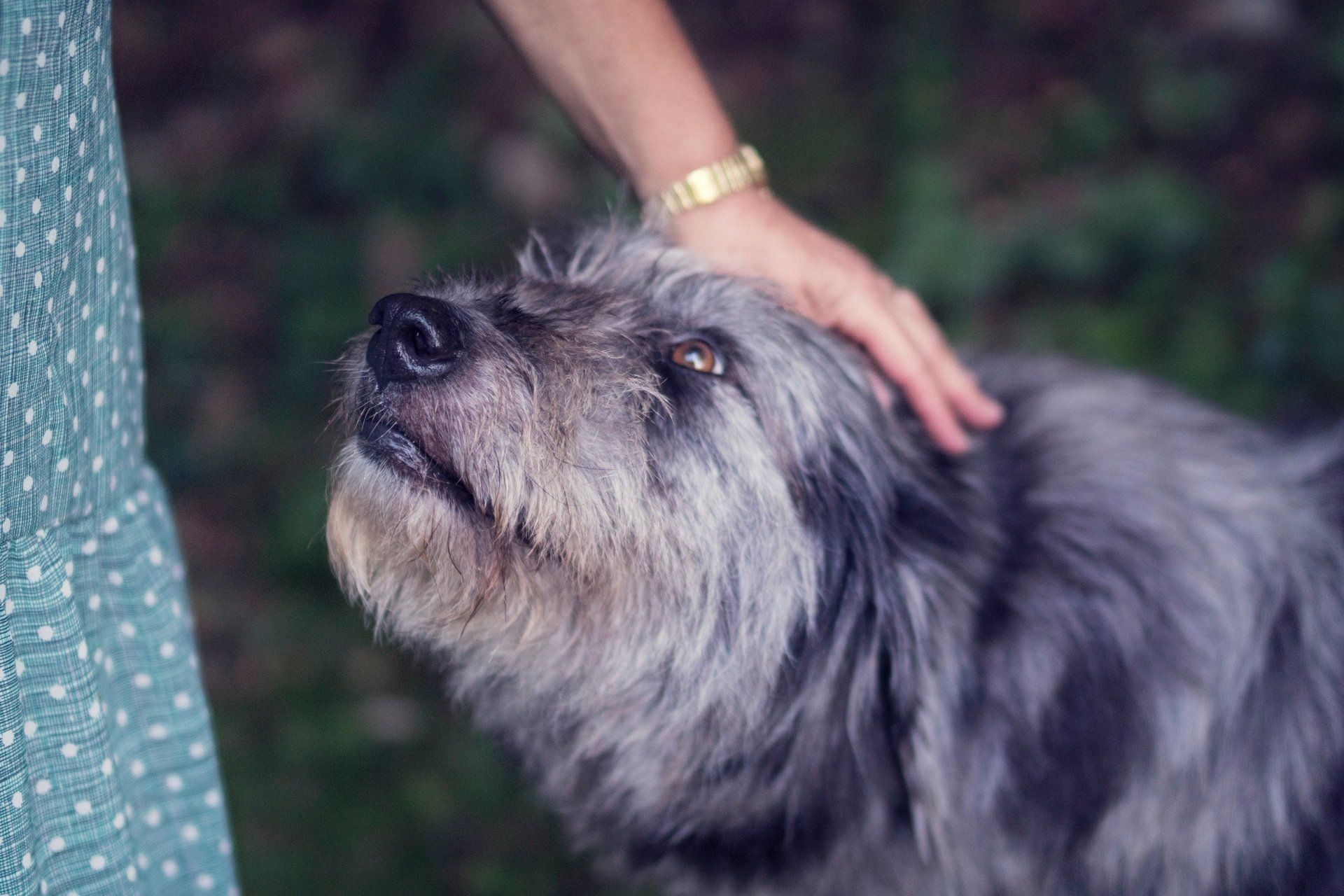Can Dogs Help People with Dementia?

Dogs really are amazing!
Did you know Alzheimer’s is the sixth leading cause of death in the United States? It has been shown there are ways the dogs may help people with dementia.
Millions of Americans suffer from some sort of dementia with more than 5.3 million suffering specifically from Alzheimer’s disease. Dementia sufferers present similar challenges to their caregivers that many parents of kids with disorders like Autism, chromosome disorders, intellectual disabilities, and conditions that present autism spectrum behaviors.
Alzheimer’s is a progressive disease.
However, dementia symptoms gradually worsen over time. In its early stages, memory loss is mild, but with late-stage Alzheimer’s, individuals lose the ability to carry on a conversation and respond to their environment. People with Alzheimer’s tend to develop behaviors that are hard for caregivers to deal with and can even become combative. Often before the individual loses the ability to walk around, they can wander away from their home and lose the ability to find their way home or explain to others that they are lost. Often, they even report confidently that they are on their way to any number of locations like to visit their children, to the store, or a park they remember from their childhood.
It has been shown there are ways the dogs may help people with dementia. Importantly though, we must first look at the situation realistically. It is not appropriate to put a dog in charge of someone’s safety, to believe that they will make appropriate decisions for a person. Service dog work is really a series of games and rewards. This allows the service dog to perform helpful tasks for their person using commands that the dog understands. Dogs do not understand that the life of their human may be at stake. They still need a handler to keep them on task when their minds lead them astray.
Dogs cannot be used to replace a carer, but they certainly can be used by the carer to assist in providing appropriate care and safety to the sufferer.
Tracking
One of the most frightening things is knowing your loved one is lost, and you have no idea where to look. This situation is common in the Autism community as well. Dogs can be trained in tracking. They can be trained to search for the specific loved one by their scent. If they wander from home, when you are out at the mall, or visiting a friend, the dog and the caregiver team can work together. They can combine to find the lost loved one quickly hopefully preventing a possible life-threatening danger, like wandering out into traffic or going into deep water.
Behavior Interruption
Another task dogs can be train to do is called behavior interruption. Once the dog is trained, the caregiver can send it to interact with their loved one without actively engaging them themselves. Most of the time when the caregiver tries to intervene the agitation escalates. Sending the dog in to interrupt the behavior can distract the person and get them to engage in appropriate behavior with the dog, forgetting what they were agitated about.
Mental anguish is the most frustrating aspect of this dementia. Most commonly, the person no longer recognizes their spouse and may become agitated that they are in their home. They often are confused and may see things that are not there, leading to fear and agitation. An experiment was conduction where a service dog was placed with a man whose wife suffers from a progressive form of dementia. When she becomes agitated, he places the dog in her lap and asks her to remove a tangle from the hair behind the dog’s ear. She will sit for hours picking at the tangle, peaceful and relaxed. Having the dog in her lap calms her almost immediately. No matter how combative she becomes, she will never engage in negative behavior with the dog. It appears that the mind remembers the peaceful interactions with dogs long after most other memories are gone.
Tethering
There can be times when out in the community the person may have difficulty staying with the family. In these situations, it may be appropriate to use the tethering system. A wristband can be attached to the dog’s vest by a tether. This will assist the person to stay on track and with the family as they move through crowded situations like festivals or mall type environments.
Companionship
All dogs, whether they are trained or not, provide companionship and friendship for their owner or partner. For dementia sufferers, they can create security by maintaining a meaningful daily routine, which adds to the quality of life. Simply walking the dog each day can provide valuable exercise and independence for the partner and keeps them healthy longer. Social interaction between the human partner in the team and other people can often develop. Loneliness and isolation experienced by people with dementia can be reduced by these social interactions. This can provide added benefits for their caregivers as well.
In real life placement, the husband of a dementia sufferer said numerous times, “This dog doesn’t just help my wife, she saved my life.”
So, do you think dogs may help people with Dementia?
Dogs really are amazing!




